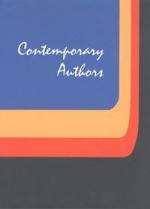|
This section contains 1,719 words (approx. 6 pages at 300 words per page) |

|
SOURCE: "Name-Dropping the Ancients," in Nation, New York, Vol. 262, No. 6, February 12, 1996, pp. 32-4.
In the following review of On Grief and Reason, Greenbaum faults what she considers Brodsky's obscurity, sexism, and didacticism in the volume.
It starts innocently enough. Perusing a book of poems or essays by Joseph Brodsky you think, "A Nobel Prize winner. He must be something." Soon on, the author mentions his friendship with Anna Akhmatova. "He must be really something," you correct yourself. Throughout the next pages Brodsky confirms this, letting on—through a lyricized avalanche of name-dropping—that he is intimate with every literary tradition since Genesis. You want to follow such intelligence to its zenith! But, oddly, you feel stranded by the work. Every now and then—sweating, bushwhacking your way through thickets of allusion-laden, sexist, self-indulgent, self-congratulatoryprose—you wonder why a celebrated man of letters like Joseph Brodsky is largely unreadable...
|
This section contains 1,719 words (approx. 6 pages at 300 words per page) |

|


